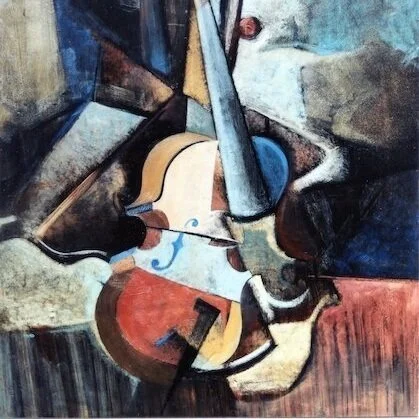July 1-7: Alma 17-22
I Will Make an Instrument of Thee
Artist Julio Ciccio was trained at the Higher School of Visual Arts Lino Eneas Spilimbergo in Bahía Blanca, Argentina. He became a teacher, now retired. He writes, I am, “immensely grateful to the Lord and to my parents who allowed and supported me to do work I loved. In my life as an educator from the start I understood that having an inclination or talent in art was not enough; that the fundamental thing was humility, effort, dedication, the desire to learn, having an attitude like the sponge that is always absorbing, an attitude that continues in me, these days, of learning and listening. Over time, especially as a member of the Church, these principles and values were affirmed and magnified to the point of knowing and feeling the wonderful opportunities that I had and will have to be an instrument in the hands of the Lord. The works of greatest importance and joy at this time are not reflected in drawings, paintings or carvings; they are engraved in my heart and personal journal, infinitely grateful for what I could do with the Lord and for the Lord.” [Translation by Julián Mansilla.]
The painting, Violines sobre mesa, is from a series of paintings by Julio Ciccio of string instruments. A musical instrument’s ultimate purpose is manifest when an artist picks it up and plays. Alma and the sons of Mosiah are told by the Lord, “I will make an instrument of thee in my hands unto the salvation of many souls” (Alma 17:11). Are you an instrument?
Discussion Questions:
Think of musical performances that you have heard (or in which you have participated as a performer), including solo performances, those by a small group (like a quartet), and those by a large group (like a choir or orchestra). How do these reflections impact your perception of you as an instrument in the Lord's hands?
When overcome by the Spirit for several days, Lamoni appears to many to be dead. His wife, however, reports that while others may think he is dead and even that "he stinketh," to her, "he doth not stink" (Alma 19:5). She became Lamoni's advocate when he was unable to advocate for himself. How did her ability to see him as a non-stinker impact her effectiveness as his advocate?
King Lamoni granted to his people "the liberty of worshiping the Lord their God according to their desires, in whatsoever place they were in" (Alma 21:22). Joseph Smith declared: "If it has been demonstrated that I have been willing to die for a 'Mormon,' I am bold to declare before Heaven that I am just as ready to die in defending the rights of a Presbyterian, a Baptist, or a good man of any denomination; for the same principle which would trample upon the rights of the Latter-day Saints would trample upon the rights of the Roman Catholics, or of any other denomination who may be unpopular and too weak to defend themselves. It is a love of liberty which inspires my soul—civil and religious liberty to the whole of the human race." Can you think of an example of various religious groups working successfully together toward a common goal?
Questions for Youth & Children:
Alma was very excited to see his friends, the sons of Mosiah, in chapter 17. Why was he so glad to see them? How did this group of friends influence each other to do good? How do your friends help you to do good?
Abish was a fabulous member missionary as she shared what she saw and what she chose to believe to be true (see Alma 19:16-30). What did Abish do that you can do in sharing spiritual experiences with others?
Why do you think that the churches that were built by King Lamoni for his people were called "synagogues" even after he was converted to Christ (Alma 21:20; see also Alma 16:13; 21:16)?

